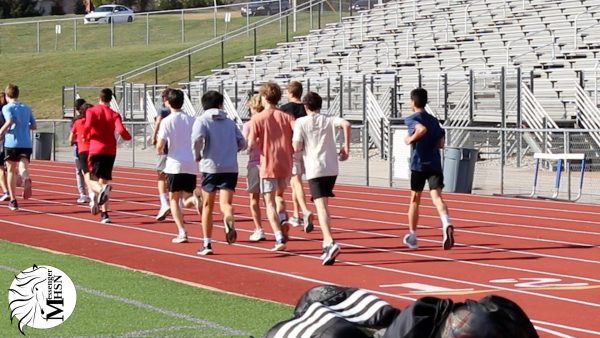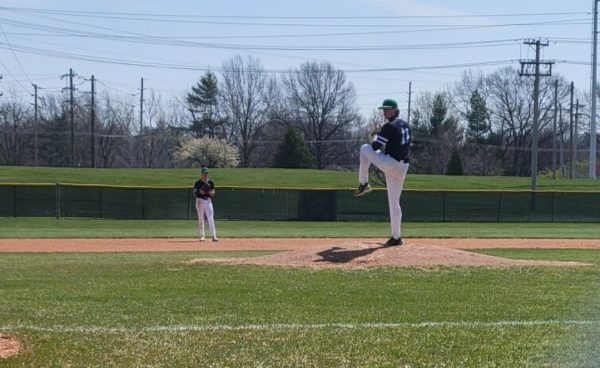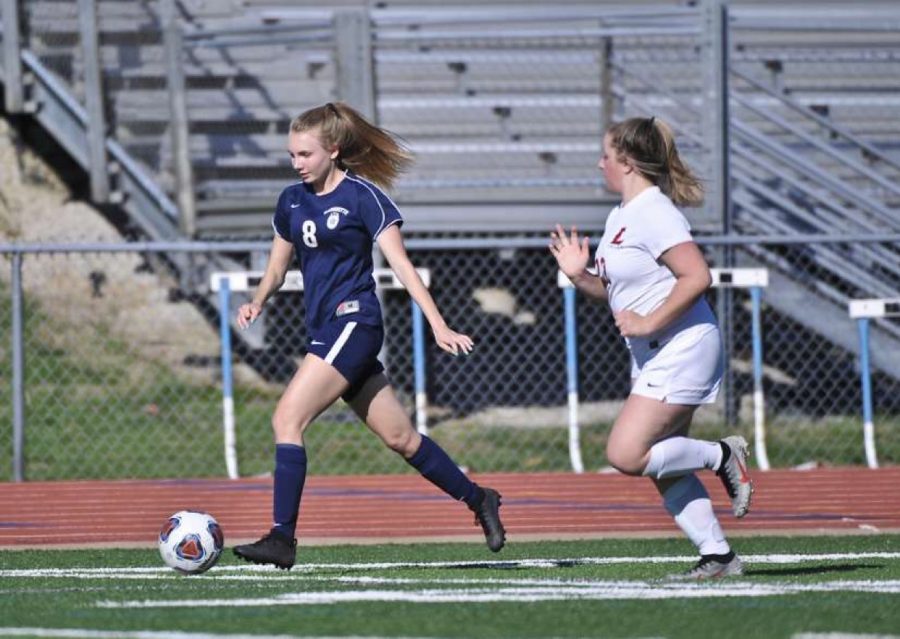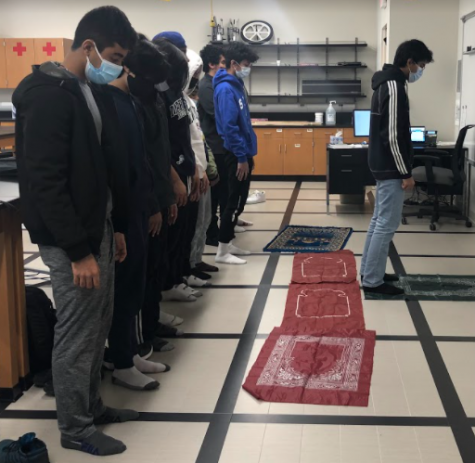Competitiveness Stems Mental Strain on Athletes
Media by in-game photography
Sydney Wurdack, junior, protects the ball in a competitive game against Liberty.
Competitiveness. It’s what drives athletes to out run their opponents. It’s what drives a team to win a district title. It’s what drives a player to be the best.
This is exactly what competitiveness is for Sophie Chang, freshman.
Within her first year of high school, Chang made it onto the varsity tennis team and ranked in the top three.
Chang said being competitive has allowed her to become a better player by improving her work ethic and pushing her boundaries.
“I personally believe that competition stems from the fact that tennis is usually played alone and it’s like people say: your biggest competitor is yourself,” Chang said.
Ultimately, Chang said the upsides of competitiveness outweigh the downsides; however, notable downsides do exist such as being a competitor against your own team members.
In tennis, a ranking system is put in place which numerically ranks players based on their performance for the season. Chang said this system is not her favorite.
“The ranking definity builds pressure causing people to feel dejected if they move down in rank and it lowers self esteem when you are compared to your teammates,” Change said.
Chang said competitiveness has made her more confident in her abilities while at the same time making her question her self worth and generating mental strain.
Chang is not the only athlete who endures mental stress while playing a competitive sport. The International Journal of Sport and Exercise Psychology has found that the athlete population has higher chances of being prone to mental fatigue due to risk factors such as extensive training and a stressful lifestyle.
Sydney Wurdack, junior, plays j.v. soccer and said soccer is often about fighting to win and proving one’s abilities to the coaches.
“When expectations of being the best are not met, it really takes a toll on my mental health because it is easy for me to talk down my ability to play.” — Sydney Wurdack, junior
“When expectations of being the best are not met, it really takes a toll on my mental health because it is easy for me to talk down my ability to play,” Wurdack said.
Wurdack said the strong mindset and physicality needed to win games can wear her out. She said there is an extent to being competitive alongside enjoying one’s sport but not when it becomes pressurizing.
Noah Freeman, senior, is a varsity hockey and lacrosse player who is fond of competitiveness. He said that instead of causing stress, it fosters an edge to win.
Freeman said the reason he plays hockey is because of the rush of the game and the constant push to stay focused while fighting to win.
“Competition isn’t keeping me from being healthy and sensible; if anything, it keeps my mind sharp, engaged and ready for more,” Freeman said.
On many occasions, Freemans said competition can be nerve wracking and disappointment can set in, especially in the final minutes of a big game, but that’s what makes the game more exciting and enjoyable.
“If you use your emotions in a positive way, as fuel, then it just makes you that much stronger,” Freeman said.
For Steve Conway, boys assistant varsity and girls j.v. soccer coach, competitiveness is vital. He said it proves to him how passionate players are for the sport they play.
“I prefer there to be competition in games and even among teammates because it makes players bring their ‘A’ game,” Conway said.
Joshua Hyde, girls varsity tennis coach, agreed.
“Healthy competition can drive players to success while also taking joy in the sport,” Hyde said.
With a competitive mindset, Hyde said he has seen players bounce back from defeats by using a loss to motivate themselves to work harder.
He always reminds his team that an athlete should view their sport as a mental break rather than a pressure-packed environment.
“In society today, we set a lot of lofty expectations for our student-athletes and there is a push to drive them to be the best when maybe they should focus on being their best,” Hyde said.
Your donation will support the student journalists of Marquette High School. Your contribution will allow us to purchase equipment and cover our annual website hosting costs. You may become a PATRON by making a donation at one of these levels: White/$30, Green/$50, Blue/$100. Patron names will be published in the print newsmagazine, on the website and once per quarter on our social media accounts.

Lajja Patel (she/her), senior, is the features editor for the Marquette Messenger. This will be her second year on staff. Lajja also is part of the Key...












